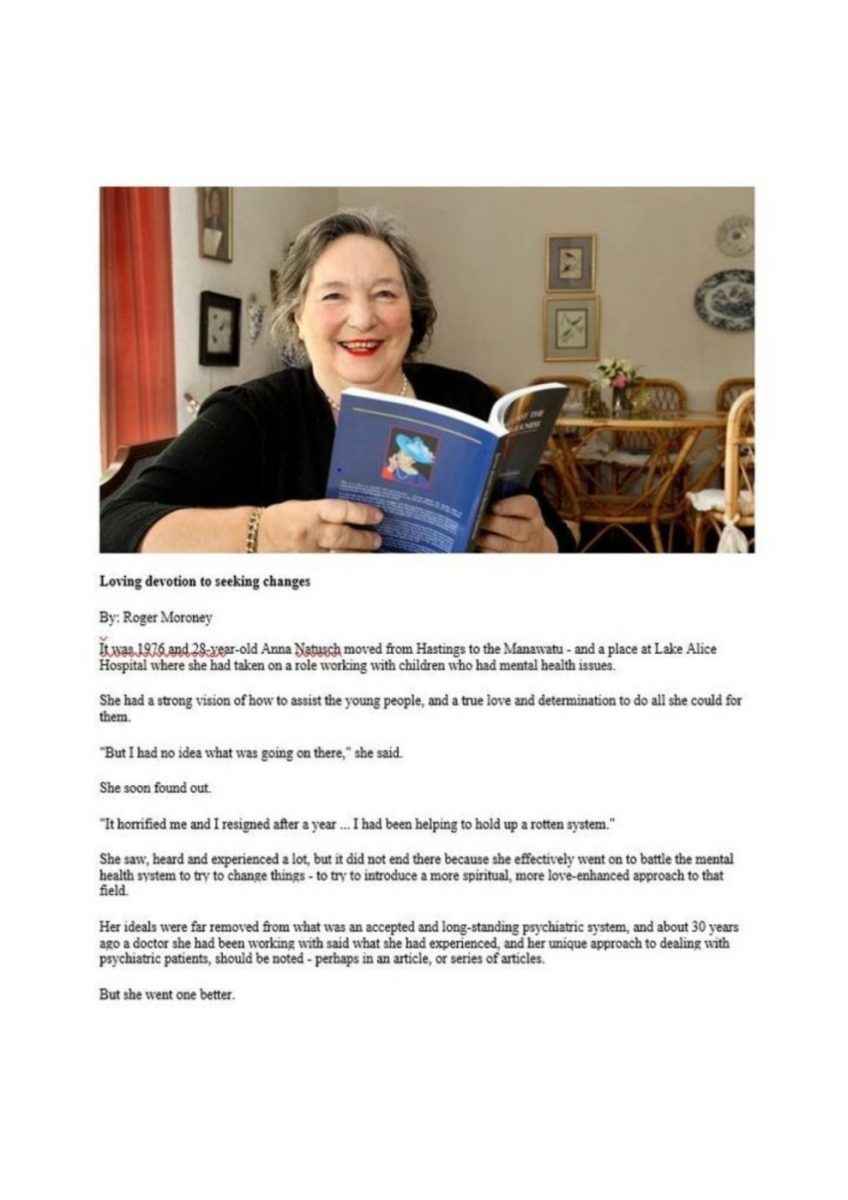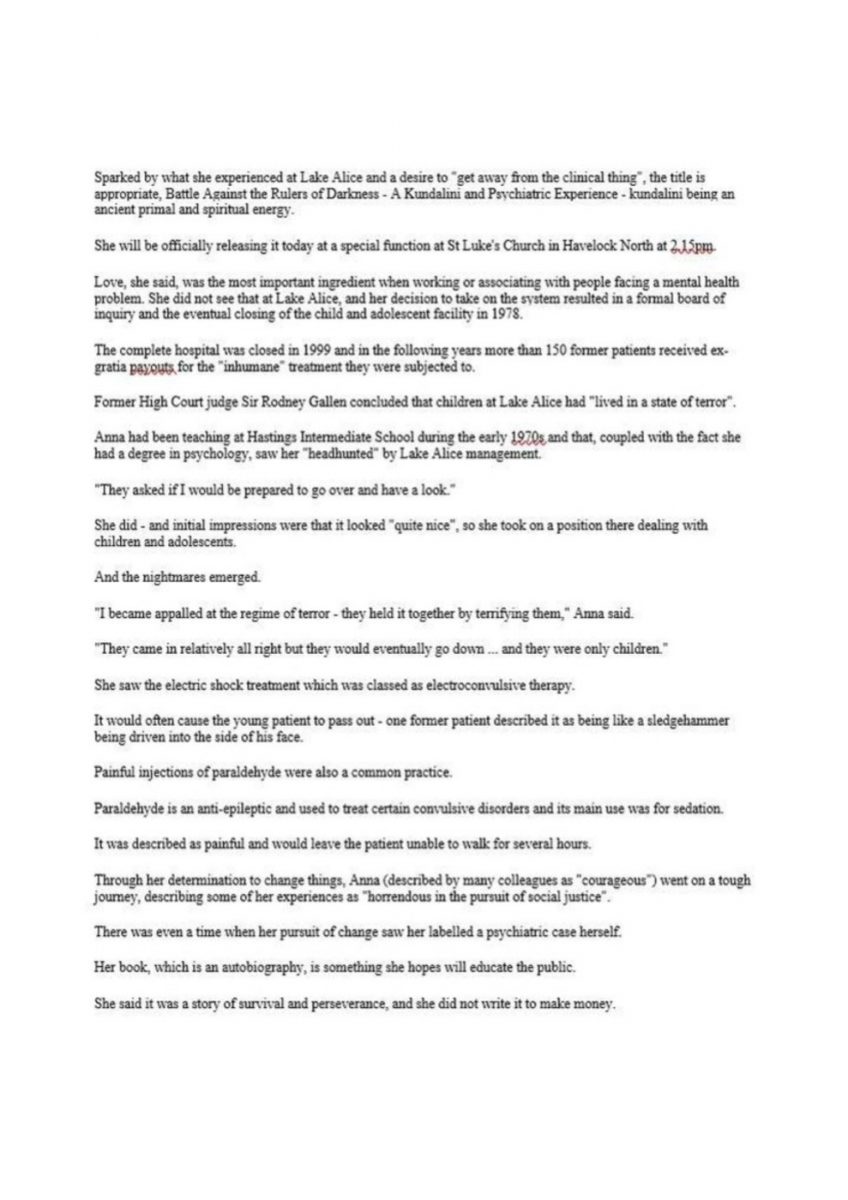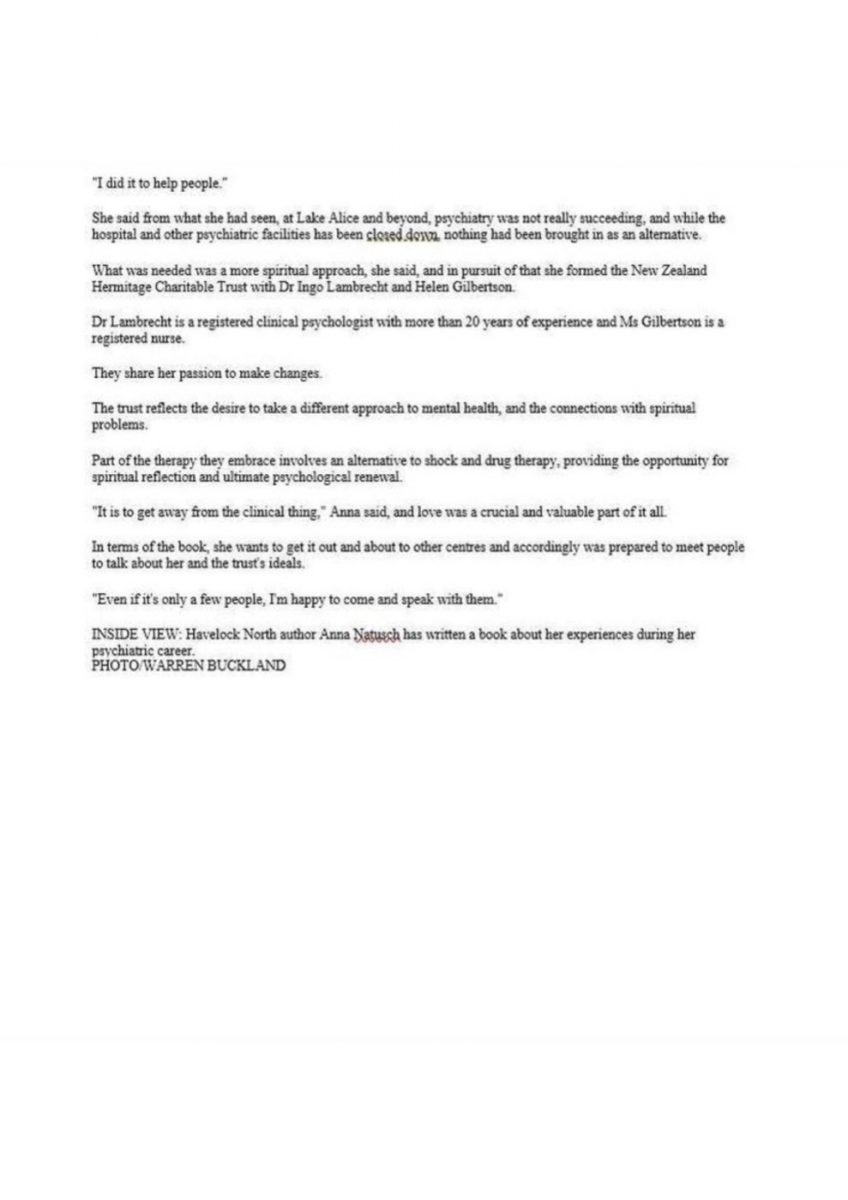“I started writing a book – it is a collection of writings from over 30 years.”
Sparked by what she experienced at Lake Alice and a desire to “get away from the clinical thing”, the title is appropriate, Battle Against the Rulers of Darkness – A Kundalini and Psychiatric Experience – kundalini being an ancient primal and spiritual energy.
She will be officially releasing it today at a special function at St Luke’s Church in Havelock North at 2.15pm.
Love, she said, was the most important ingredient when working or associating with people facing a mental health problem. She did not see that at Lake Alice, and her decision to take on the system resulted in a formal board of inquiry and the eventual closing of the child and adolescent facility in 1978.
The complete hospital was closed in 1999 and in the following years more than 150 former patients received ex-gratia payouts for the “inhumane” treatment they were subjected to.
Former High Court judge Sir Rodney Gallen concluded that children at Lake Alice had “lived in a state of terror”.
Anna had been teaching at Hastings Intermediate School during the early 1970s and that, coupled with the fact she had a degree in psychology, saw her “headhunted” by Lake Alice management.
“They asked if I would be prepared to go over and have a look.”
She did – and initial impressions were that it looked “quite nice”, so she took on a position there dealing with children and adolescents.
And the nightmares emerged.
“I became appalled at the regime of terror – they held it together by terrifying them,” Anna said.
“They came in relatively all right but they would eventually go down … and they were only children.”
She saw the electric shock treatment which was classed as electroconvulsive therapy.
It would often cause the young patient to pass out – one former patient described it as being like a sledgehammer being driven into the side of his face.
Painful injections of paraldehyde were also a common practice.
Paraldehyde is an anti-epileptic and used to treat certain convulsive disorders and its main use was for sedation.
It was described as painful and would leave the patient unable to walk for several hours.
Through her determination to change things, Anna (described by many colleagues as “courageous”) went on a tough journey, describing some of her experiences as “horrendous in the pursuit of social justice”.
There was even a time when her pursuit of change saw her labelled a psychiatric case herself.
Her book, which is an autobiography, is something she hopes will educate the public.
She said it was a story of survival and perseverance, and she did not write it to make money.














Do you know something about this record?
Please note we cannot verify the accuracy of any information posted by the community.